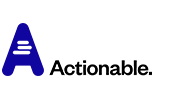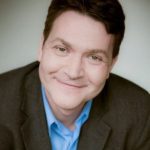I’m a behavior change expert. But I didn’t always know how to describe myself.
I often find myself in new situations, meeting new people. Whether it’s with a new client I am working with, at a conference, or at a cocktail party, I love meeting new people. But for years I have struggled with the first question many people ask, the dreaded “so what do you do for a living?”
I guess it’s a North American thing. I much prefer questions like: “what are you excited about right now?” What do you love doing on the weekends?” “What topic can you talk about endlessly?”
I guess the reason why I didn’t like the first question was I never knew how to answer it. I was always jealous of the people who could clearly answer the question in one word: I’m a banker, lawyer, teacher, nurse.
I usually tried to be witty and say something like “depends on the day.” One day I am a keynote speaker, another day a coach or advocate.
Recently, I was at a retreat for business owners, the 2nd Annual Actionable Partner Summit. In one of the sessions we were asked to define our superpowers, or put another way, to answer the question, why do clients hire you?
Fantastic question that really got me thinking. After writing down a few words like trust, problem solving, getting results—it came to me. The core of everything I do is: changing people’s behavior to get them (and their team) measurable results.
Damn it, I am a behavior change expert and I never even shared that with others.
It really is at the core of everything I do, whether it’s coaching a client and moving them into action, changing the thinking and actions of a corporate team, or working with the children’s hockey program I run.
With that in mind here are three ways to kickstart behavior change for you and your team:
1) Ask Yourself Big Questions to Get Clarity
I strongly believe that the answers we get in life are only as good as the questions we ask. We all want to be heard and understood, yet a cardinal rule that is often broken in sales conversations is “listen more, talk less.” That can be challenging for someone like me that speaks for a living.
I have experimented with asking a variety of questions to clients, and an all time favorite comes from Dan Sullivan. The question is:
“If we were meeting here 3 years from today and you were to look back over that time, what has to have happened during that period, both personally and professionally, for you to feel happy about your progress?”
Asking someone this question is a gift to them. Most often the immediate response I get is “that is a great question.” This question provides the person an opportunity to really focus on what they want in the future, and gives them a brief vacation from the now. Immediately they can get a sense of if they are on the right track, or need to recalculate.
Clarity is what we want for ourselves and our organizations, and it is the critical first step in behavior change. Resistance to change is often the result of unclear goals.
2) New Environments = New Results
If you have read my previous posts you have heard me rave about the importance of changing your environments to change your results. No different here.
One of the world’s leading authorities on behavior change and one of the top corporate coaches in the world is Marshall Goldsmith, author of Triggers.
Goldsmith suggests looking at our environment as if it was a person. Can you think of a co-worker, past or present that just seemed to rub you the wrong way? I know I can. If I was going to be in a meeting with this person in the morning, I noticed how I was reacting long before the meeting started. In the car on the way there I was already getting defensive, upset and thinking of what to say to them. This is far from me at my best. The problem was not the person, but my reactions to them. When prompted by a good friend to think about that person through a different lens—the things I respected about them, how they made our team better, etc.—my response immediately changed and so did the relationship.
Remember, everything from our thoughts, beliefs, people we hang out with, and the physical places we inhabit, are environments. Think back to the last time you were travelling to a city for the first time. Did you see things with a fresh pair of eyes? Did you get curious and start asking questions? Or how about the last time you were talking to people outside your industry? I bet you came up with new ideas and perspectives.
Being intentional about changing your environments is key to changing your behavior.
3) Learn Less, Apply More
For many years I have been an avid reader of business books. I love learning new ways to do business from leaders from around the world. I could sound “smart” at a cocktail party, showing off how much I knew.
Problem was for many years I “knew” a lot, but didn’t follow through with behavior change from the lessons I learned. Knowing and doing are two very different things. We don’t have a knowledge problem, we have a taking action problem.
My advice: read less, apply more. When I learn something new of interest, I immediately ask “how can I can apply this?”
Two years ago a good friend of mine told me: “I love going to events you host, and meeting such interesting people. I always walk away inspired and with new ideas, I just wish you hosted more events”
Interesting. So I asked her a few more questions and found out that she loved sharing and learning from people in other industries. She liked that she was talking to people who had a relationship with me, as she felt an immediate trust and bond.
So what did I do? I invited 10 cool people to my first ever group leadership program. The first steps were scary as hell—but 18 months later my clients love it and get results.
It’s funny, the clarity I got about answering the question “what do you do for a living?” came as a direct result of these three takeaways (and I didn’t even realize it). The group leader of the superpowers exercise started by asking us great questions like: “why do clients hire you?” “what is the outcome you produce?” “how do they feel about working with you?”
My answers came as a direct result of those questions, not to mention that I was in new environment, at a super cool conference centre meeting new business leaders. And finally, if they gave us a book on defining our superpowers and asked us to read it, I can honestly say I would not have gotten the same result. Learning more was not the issue, the action was where the result was waiting for me.
So next time you see me at a reception, please come over and ask me what I do for a living. I’m ready for you.



